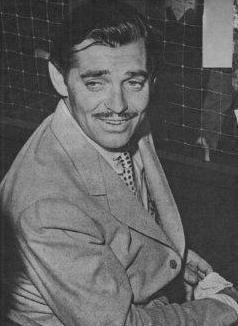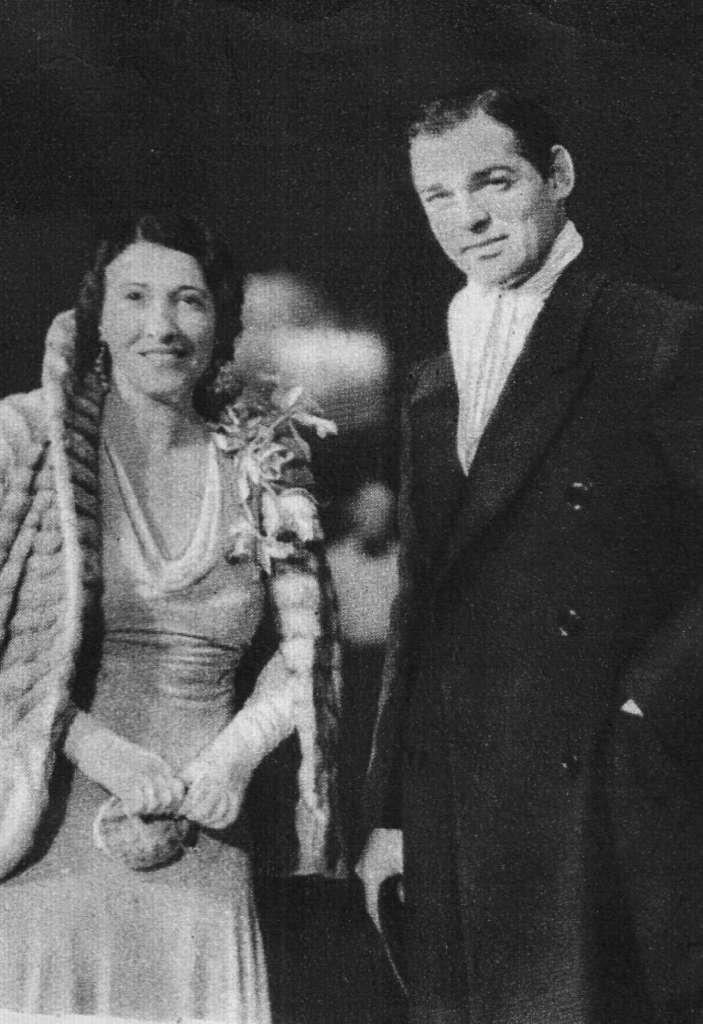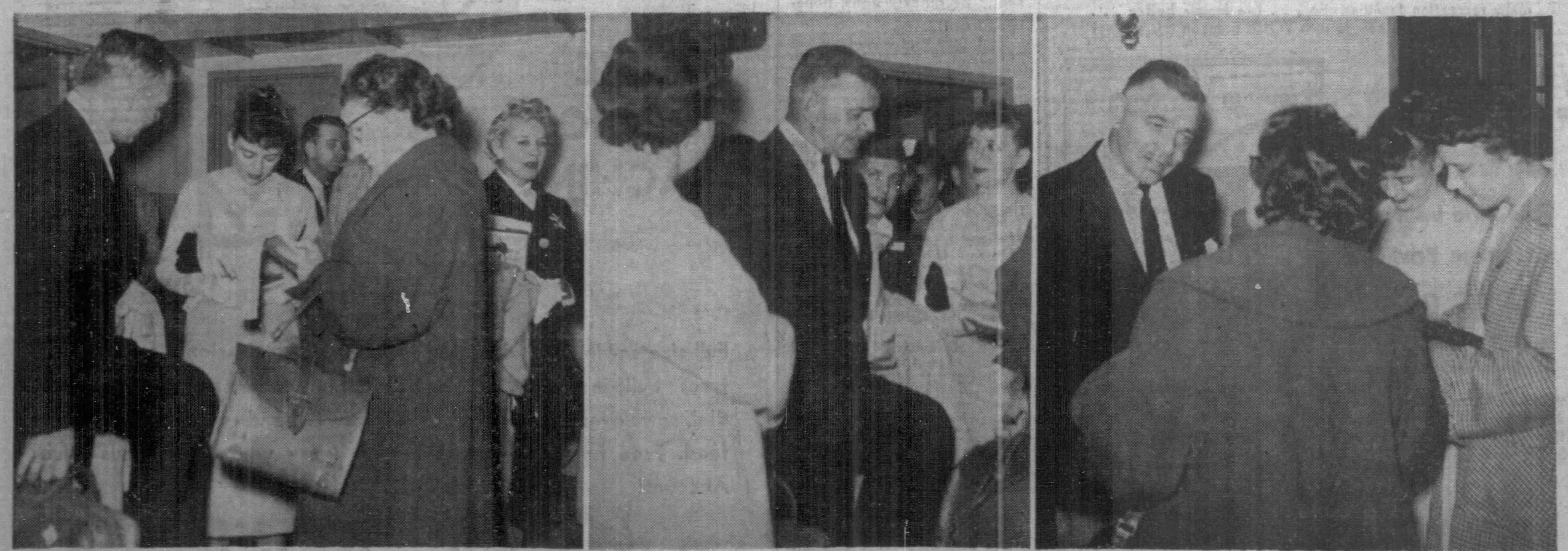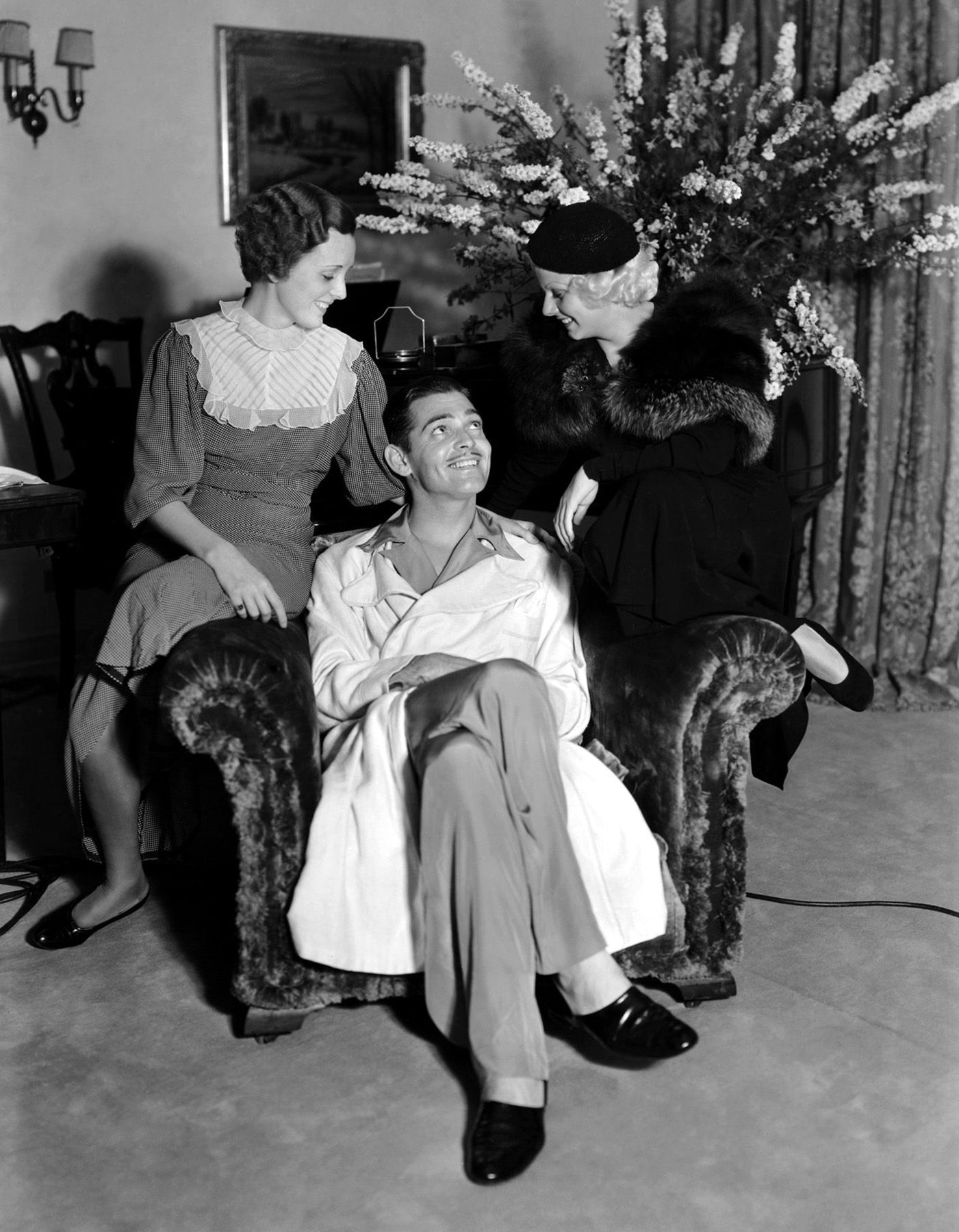
{New Article} 1960: How Does It Feel To Die

I like finding articles from the 1950’s and early 1960’s about Clark, mainly because the “fluff” of the 1930’s has dissipated and you are more likely to find real interviews with real quotes, not fussy, gushy, studio-directed pieces. Well, this one not so much. The full title of it is “How Does It Feel to Die, Clark Gable: The Strangest Story Story Ever Told” and I have no idea why it was titled this. The article is completely about when Kay miscarried their baby in 1955 and Kay’s subsequent heart problems. There is nothing about how it feels to die and there is nothing strange about the story other than the fact that I can’t really understand why it was written at all and what editor approved it for publication.
In the dark, quiet bedroom, Clark Gable sat up suddenly. “Kay?” he said sharply. “Kay?” The tiny clock on his night table read 4:43.
“Kay?” The form in the other bed stirred slightly. “Hmm?” said Kay Gable sleepily. “Huh? What’s wrong?”
Clark let his breath out in a rush. “Nothing,” he said at last. “Nothing. Kay—you all right?”
His wife buried her head deeper into the pillows. “Sure,” she mumbled. “Jus’ fine—” Her voice trailed off. She didn’t move. Soon she was breathing evenly, sound asleep again.
With a sigh, Clark let himself slide down under the covers. Everything was all right. Everything was fine. Kay was fine. As she always was, now. Always. And yet—his mind refused to relax. Restlessly, his eyes wandered through the dim light, picking out familiar objects. The draperies Kay had hung over the wide windows. The big bureau he had picked himself. The chair Carole had bought only a month before she died—Carole Lombard, his third wife.
When Kay married him and moved into the big, airy bedroom, he’d said, “I suppose you’ll want to get rid of the old furniture, Carole’s stuff and all. Buy anything you want—”
But Kay, wonderful Kay, had smiled and shaken her head. “No,” she’d said, in the clear, firm voice he loved so well, “Carole had good taste; she bought handsome things. I’m not jealous of the past, Clark. How could I be? I have you now…”
“And always,” he’d said. He had taken her in his arms and kissed her, and for the first time in years and years he too had felt free of the past, free of its beauties and terrors, its happiness and its tragedies. Free of the memory of death.
But tonight—
Death.
The word echoed restlessly in his head. Now, in the grey dawn, he could remember what had snapped him suddenly awake. A dream. He had dreamed of death, had wakened, calling Kay, with the cold chill of it somehow all around him.
As death had reached out to so many in Hollywood recently. Shutting his eyes, Clark turned on his side. He wouldn’t think about it now. Now he would go to sleep.
Victor McLaglen, his stubborn mind whispered.
Errol…
Tyrone..
Paul Douglas…
The beautiful Kay Kendall.
In so few months, death had claimed so many.
In Hollywood, people were superstitious. When one died, they waited for the next. “It comes in threes,” they said. “Never just one—” It was nonsense, of course, and yet—
Somehow there was always another.
Angrily, Clark swung his long legs out of the bed and stood up. Morbid nonsense, he told himself. He’d get into his bathrobe and make himself some coffee. In an hour or so the sun would be up. Then everything would look different.
Did Clark recount this entire thing to the writer? I severely doubt it. So where did this come from? Pure fiction? Ironically, of course, Clark died later this same year.
There is a recount of Kay’s miscarriage then about her heart problems.
Yes, Clark Gable told himself, remembering, as he measured coffee into the electric percolator in the silent kitchen—a man can survive tragedy and come out smiling.
The coffee began to perk in the pot, noisily, but Clark scarcely heard it. His mind had filled again with other sounds, from other times. He remembered the night, only such a short time after Kay recovered from the loss of their child, when again she had cried out in sudden pain, when again the doctor had come with his reassuring voice—and terrifying words:
“Let’s get her back to the hospital, Mr. Gable. There’s something going on around her heart!”
The dragging hours…The lonely trip to the diner for coffee; the hurried walk back to the hospital. And at last, the doctor:
“Angina Pectoris. A very painful and dangerous condition of the heart. But with care, she’ll be all right.”
With care!
In his great burst of relief, Clark scarcely heard the words. But Kay, coming slowly out of her illness, heard them over and over in her mind. Care, for a heart patient, meant practically invalidism. Long hours of rest. No strenuous activity. Not too many steps to climb, not too many parcels to carry. Hunting? Fishing? Camping? Out of the question.
She had married Clark Gable to make him happy, to share with him his pleasures, to join him in his rugged life, to be his companion. Now, her heart wept, she was to tie him instead to a house, a bedroom, an ailing woman. Of course, he protested none of that mattered. Of course, he told her, as he had told her before, that all he wanted was to be with her—anywhere, anyhow. Of course, he meant it.
By the time she was out of the hospital and home, other people had begun to speculate about what Kay’s illness might do to the marriage. The columns were full of hints, veiled in sympathy, of the destruction Kay’s weakness could cause.
Clark, reading them, slammed the papers down in fury. Kay did not. She bit her lips thoughtfully.
She was going to get well.
And with a resolution stronger than any medicine, she set about her own cure.
This was also recounted in this article as well, about how now that Kay is an invalid surely Clark will leave her because she can’t go out fishing with him anymore. Did people really believe that? Did Kay really believe that? In sickness and in health, but not if you can’t go fishing? Carole and Kay both tapered their own likes and dislikes and fully embraced marriage with Clark with the attitude that they must always make him happy. An antiquated way of thinking, certainly, but one must remember this was the 1930’s-1950’s. It’s hard to imagine a wife with that mentality nowadays. And it’s hard to imagine people thinking a husband will probably leave his wife because now that she has a heart problem she isn’t any fun.
He could remember now how, slowly, quietly, almost unnoticeably, she’d brought the old way of life back to them again—a little slower, to be sure, a little gentler, a little more concerned with not being out too late, fishing too long, walking too far—but still, the old, beloved life. He could remember the times when she’d paled suddenly or gasped and he’s said, “What is it? What is it?” Always she had managed a smile for him. Always she’d said, “Don’t worry. It’s nothing. I’ll rest a little, that’s all—” Then, for a day or two, while he hovered anxiously, she would take it easy, nap in the afternoon, cancel a date or two. But by the end of the week, she would be back in stride again.
Finally he’d talked to the doctor about it. “Doctor, tell me, should I let her do all this?”
The doctor had smiled. “Mr. Gable, you try to stop her and you’ll do more harm than four heart attacks. She’s learning how much she can and can’t do; she’s taking care of herself. You have an extraordinary wife, my friend. I didn’t cure her. Medicine didn’t cure her. You know what brought her around this way?”
“Willpower,” he said.
The doctor nodded. “But what gave her the willpower? One thing. I think you call it—love.”
I think you call it love.
Yes, Clark Gable thought now, holding the coffee cup. You call it love, and it’s all that matters. If you get it, it doesn’t matter if it comes from another man’s children or your own. It doesn’t matter if it comes from an amazon or someone a little more fragile. It’s the love that counts.
Oh my lord. That is vomit-inducing. If you have Pepto Bismol you can read the article in its entirety here.
(Article #15 posted in 2019)





One Comment
Rhonda
I would bet all the personal details and the feelings and thoughts expressed by Clark and Kay were created by the author.
From what I know of Gable, this is not stuff he would share of himself for publication.
I can certainly see female readers of the day lapping it up though. It may have sold many issues of Photoplay!
Agreed…the title is bizarre and does not fit the article. Perhaps it was another ploy to entice readers to buy the magazine. (Barf!!)
Rhonda